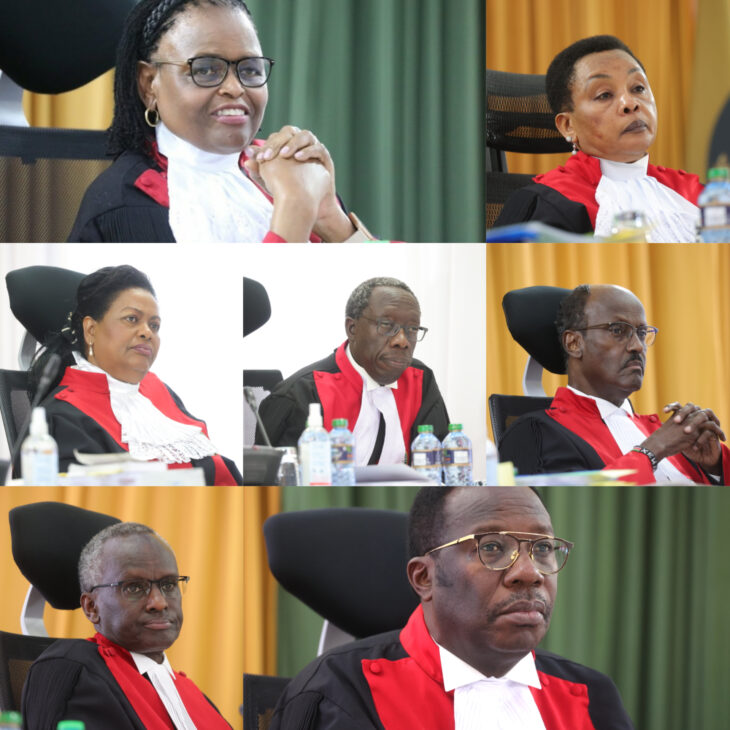NAIROBI, Kenya, Sept 5- The Supreme Court of Kenya is set to deliver a verdict on several presidential petitions challenging the win of President-elect William Ruto on Monday, at 12 pm.
The 7-Judge bench will either annul the win or uphold it. The bench is led by Chief Justice Martha Koome.
The lead petition is by defeated candidate Raila Odinga and his running mate Martha Karua.
It is the third time since its creation under Kenya’s 2010 constitution that the court has been called upon to adjudicate election disputes.
The seven-member panel held several days of hearings last week to consider seven petitions filed by Odinga and other groups and individuals.
Odinga has described the results of the vote — which showed him losing by a margin of less than two percentage points — and its handling by the Independent Electoral and Boundaries Commission (IEBC) as a “travesty”.
The Supreme Court is the highest in the land, established “as the final arbiter and interpreter of the constitution”.
Its rulings are final and binding.
The court comprises a president, vice president and five other judges. They are officially appointed by the head of state, although he does not have the power to choose them.
Instead, candidates’ names are submitted to the presidency for approval after an open nomination process and public hearings, some televised, held by the judiciary.
The Supreme Court was established to rule on decisions by appeal courts regarding the law or interpretation of the constitution and is the only court permitted to adjudicate in election disputes.
Ahead of Monday’s ruling, constitutional lawyer Demas Kiprono said Kenyans “must appreciate that the country has had a paradigm shift in terms of election dispute resolution”.
“The level of confidence we see in the court is due to the constitutional transformation that created an independent judiciary that is also financially and functionally independent,” he wrote in an opinion piece published in The Standard newspaper on Friday.
In the August 2017 poll, the incumbent Uhuru Kenyatta was declared the winner with 54 percent of the vote against 45 percent for Odinga.
Odinga petitioned the Supreme Court, claiming hackers broke into the IEBC database and manipulated the results.
In a shock decision September 1, the court ruled by a majority that the results were “invalid, null and void” and ordered a rerun, delivering a stinging rebuke of the IEBC.
The annulment was a first for Africa.
Although it won praise worldwide as a sign of judicial independence in Kenya, Kenyatta angrily called the judges “crooks” and the ruling led to bruising acrimony and unrest.
The court headed by then-chief justice David Maraga cited widespread “irregularities and illegalities” in the counting process and mismanagement by the IEBC.
A rematch was held on October 26 but Odinga boycotted the race, saying the IEBC had failed to make necessary reforms, and Kenyatta went on to win with 98 percent of the vote.
In 2013, the court rejected another poll challenge by Odinga, upholding Kenyatta’s first-term election victory.
In an extraordinary turn of events in 2018, Odinga, a veteran opposition leader, joined hands with Kenyatta and was backed by the ruling party in this year’s election.
Want to send us a story? Contact Shahidi News Tel: +254115512797 (Mobile & WhatsApp)


